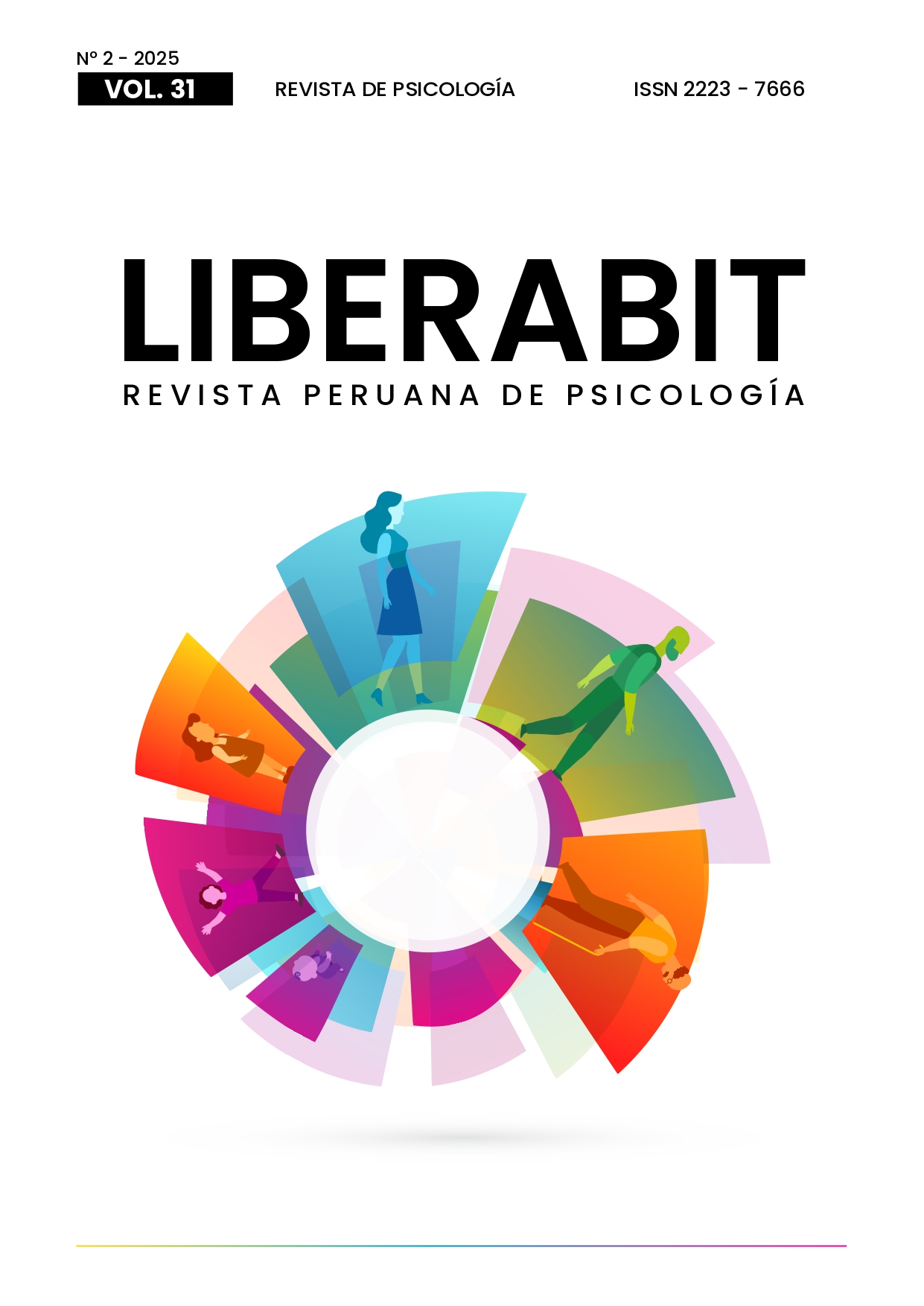Subjective Theories about the Artificial Intelligence ‘ChatGPT’ and its Relationship with Teaching, Learning, and Professional Identity of Pedagogy Students
DOI:
https://doi.org/10.24265/Keywords:
ChatGPT, teaching role, professional identity, pedadogy student, subjective theoriesAbstract
Background: Artificial intelligence has impacted various field, incluiding education. ChatGPT, in particular, has sparked debate about its influence on teaching, learning, and profesional Identity in educators. Objectives: This study describes and interprets subjetive theories about ChatGPT and its relationship with teaching, learning, and professional identity in pedagogy students. Method: A qualitative, descriptive, and interpretative case study desing was employed. Ten pedagogy students from a chilean university participated, selected through theorical sampling. Episodic interviews were conductec, and data were analyzed using thematic, axial, and selective coding. Results: Subjetive theories identified highlight ChatGPT’s potential as a teaching and learning support tool, as well as concerns regarding its impact on professional identity and learning autonomy. Conclusions: This subjectivity of future teachers, wich may guide the development of ethical and effective strategies for its use in teacher training.
Downloads
References
Baidoo-Anu, D., & Owusu, L. (2023). Education in the Era of Generative Artificial Intelligence (AI): Understanding the Potencial Benefits of ChatGPT in Promoting Teaching and Learning. Journal of AI, 7(1), 52-62. http://dx.doi.org/10.2139/ssrn.4337484
Beijaard, D., Meijer, P. C., & Verloop, N. (2004). Reconsidering Research on Teachers’ Professional Identity. Teaching and Teacher Education, 20(2), 107-128. https://doi.org/10.1016/j.tate.2003.07.001
Beauchamp, C., & Thomas, L. (2009). Understanding Teacher Identity: An Overview of Issues in the Literature and Implications for Teacher Education. Cambridge Journal of Education, 39(2), 175-189. https://doi.org/10.1080/03057640902902252
Brown, T. B., Mann, B., Ryder, N., Subbiah, M., Kaplan, J., Dhariwal, P., Neelakantan, A., Shyam, P., Sastry, G., Askell, A., Agarwal, S., Hebert-Voss, A., Krueger, G., Henighan, T., Child, R., Ramesh, A., Ziegler, D., Wu, J., Winter, C., … Amodei, D. (2020). Language Models are Few-Shot Learners. En M. I. Jordan, Y. LeCun, & S. A. Solla (Eds.), Advances in Neural Information Processing Systems: Proceedings of the first 12 Conferences (pp. 1877-1901). The MIT Press.
Catalán, J. (2016). Hacia la formulación de una teoría general de las teorías subjetivas. Psicoperspectivas, 15(1), 53-65. https://dx.doi.org/10.5027/psicoperspectivas-Vol15 Issue1-fulltext-739
Catalán, J. (2021). Análisis de investigación educacional cualitativa: aprendiendo a usar y generar conocimiento. Editorial Universidad de La Serena.
Cuadra, D., & Castro-Carrasco, P. J. (2021). La dimensión emocional de las teorías subjetivas. Revista de Sociología, 36(1), 57-67. https://doi.org/10.5354/0719-529X.2021.64426
Cuadra, D., Castro-Carrasco, P., Oyanadel, C., & González, I. (2021). Identidad profesional docente en la formación universitaria: una revisión sistemática de estudios cualitativos. Formación Universitaria, 14(4), 79-92. http://dx.doi.org/10.4067/S0718-50062021000400079
Flick, U. (2007). Introducción a la investigación cualitativa (2da. ed.). Morata.
Flick, U. (2015). El diseño de investigación cualitativa. Morata
Gajardo-Asbún, K. P. (2019). Estado del arte sobre identidad docente: investigación de experiencias de profesores en formación y en ejercicio. IE Revista de Investigación Educativa de la REDIECH, 10(18), 79-93. https://doi.org/10.33010/ie_rie_rediech.v10i18.217
García-Peñalvo, F. (2023). La percepción de la inteligencia artificial en contextos educativos tras el lanzamiento de ChatGPT: disrupción o pánico. Education in the Knowledge Society, 24, 1-9. https://doi.org/10.14201/eks.31279
Glaser, B., & Strauss, A. (1967). The Discovery of Grounded Theory: Strategies for Qualitative Research. AldineTransaction.
Grassini, S. (2023). Shaping the Future of Education: Exploring the Potential and Consequences of AI and ChatGPT in Educational Settings. Education Sciences, 13(7), 692. https://doi.org/10.3390/educsci13070692
Izadinia, M. (2013). A Review of Research on Student Teachers’ Professional Identity. British Educational Research Journal, 39(4), 694-713. https://doi.org/10.1080/01411926.2012.679614
Kalla, D., Smith, N., Samaah, F., & Kuraku, S. (2023). Study and Analysis of Chat GPT and its Impact on Different Fields of Study. International Journal of Innovative Science and Research Technology, 8(3), 827-833. https://papers.ssrn.com/sol3/papers.cfm?abstract_id=4402499
Liu, Q., & Geertshuis, S. (2016). Professional Identity and Teachers’ Learning Technology Adoption: A Review of Adopter-Related Antecedents. En S. Barker, S. Dawson, A. Pardo, & C. Colvin (Eds.), Show Me the Learning. Proceedings ASCILITE 2016 Adelaide (pp. 365-374). https://doi.org/10.14742/apubs.2016.809
Lo, C. K. (2023). What Is the Impact of ChatGPT on Education? A Rapid Review of the Literature. Education Science, 13(4), 410. https://doi.org/10.3390/educsci13040410
Lund, B. D., & Wang, T. (2023). Chatting about ChatGPT: How May AI and GPT Impact Academia and Libraries? Library Hi Tech News, 40(3), 26-29. http://dx.doi.org/10.2139/ssrn.4333415
Meneses, G. (2007). El proceso de enseñanza-aprendizaje: el acto didáctico. Interacción y aprendizaje en la universidad, 31-65. https://www.tdx.cat/bitstream/handle/10803/8929/Elprocesodeensenanza.pdf
Qasem, F. (2023). ChatGPT in Scientific and Academic Research: Future Fears and Reassurances. Library Hi Tech News, 40(3). 30-32. https://doi.org/10.1108/LHTN-03-2023-0043
Rahman, M., & Watanobe, Y. (2023). ChatGPT for Education and Research: Opportunities, Threats, and Strategies. Applied Sciences, 13(9), 5783. https://doi.org/10.3390/app13095783
Rudolph, J., Tan, S., & Tan, S. (2023). ChatGPT: Bullshit Spewer or the end of Traditional Assessments in Higher Education? Journal of Applied Learning & Teaching, 6(1), 342-263. https://doi.org/10.37074/jalt.2023.6.1.9
Stake, R. (1999). Investigación con estudio de casos (2da ed.). Morata.
Strauss, A. L. (1987). Qualitative Analysis for Social Scientist. https://doi.org/10.1017/cbo9780511557842
Sok, S., & Heng, K. (2023). ChatGPT for Education and Research: A Review of Benefits and Risks. Cambodian Journal of Educational Research, 3(1), 110-121. https://papers.ssrn.com/sol3/papers.cfm?abstract_id=4378735#
Tlili, A., Shehata, B., Agyemang, M., Bozkurt, A., Hickey, D., Huang, R., & Agyemang, B. (2023). What if the devil is my guardian angel: ChatGPT as a case study of using chatbots in education. Smart Learning Environments, 15, 1-24. https://doi.org/10.1186/s40561-023-00237-x
Wach, K., Duong, C. D., Ejdys, J., Kazlauskaitė, R., Koryznski, P., Mazurek, G., Paliszkiecwicz, J., & Ziemba, E. (2023). The Dark Side of Generative Artificial Intelligence: A Critical Analysis of Controversies and Risks of ChatGPT. Entrepeneurial Business and Economics Review, 11(2), 7-30. https://doi.org/10.15678/EBER.2023.110201
Wardat, Y., Tashtoush, M., AlAli, R., & Jarrah, A. (2023). ChatGPT: A Revolutionary Tool for Teaching and Learning Mathematics. Eurasia Journal of Mathematics, Science and Technology Education, 19(7), 1-18. https://doi.org/10.29333/ejmste/13272
Zhu, J. J., Jiang, J., Yang, M., & Ren, Z. J. (2023). ChatGPT and Enviromental Research. Enviromental Science & Technology, 57(46), 17667-17670. https://doi.org/10.1021/acs.est.3c01818
Downloads
Published
Issue
Section
License
Copyright (c) 2025 Matias López Álvarez, David Cuadra Martínez

This work is licensed under a Creative Commons Attribution 4.0 International License.
Copyright: In the event that the manuscript is approved for future publication, the authors retain the copyright and assign to the journal the rights to publish, edit, reproduce, distribute, exhibit, and communicate nationally and internationally in the various databases, repositories and portals.
Self-archiving policy: The author can share, disseminate, and publicize his research published by the media (e.g., academic social networks, repositories, and portals) available on the web. During the editorial review process, the journal will provide the author with the previous versions (post-print) which should NOT be disclosed by any media, only for personal use and for final approval. Liberabit will send the author the final version of the article (published version) in PDF and HTML to be shared, disseminated and disclosed by the media available on the web. After the publication of the articles, the authors can make other independent or additional agreements for the non-exclusive dissemination of the version of the article published in this journal (publication in books or institutional repositories), provided that it is indicated with the respective reference that the work has been published for the first time in this journal.











